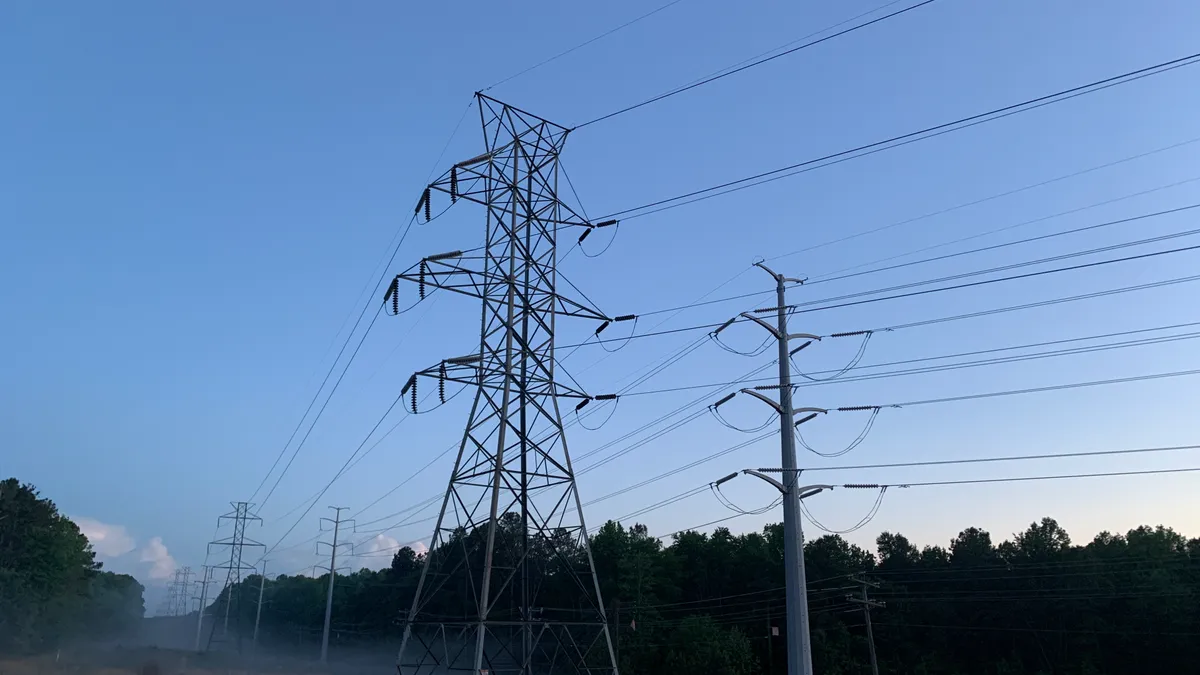Concerned about a loss of regional transmission organization independence, the Federal Energy Regulatory Commission on Friday rejected proposals that would have given PJM Interconnection transmission owners more control over the grid operator’s transmission planning process.
“We are concerned that these provisions violate the Commission’s independence requirement by providing a single stakeholder group, specifically, the PJM [transmission owners,] with undue influence over transmission planning and expansion, and thereby reducing PJM’s independent governance,” FERC said in response to one set of proposed changes.
The issue centers on three related filings by PJM’s transmission owners and the grid operator that would have shifted PJM’s Regional Transmission Expansion Planning, or RTEP, protocol from PJM’s Operating Agreement to the Consolidated Transmission Owners Agreement, or CTOA.
The RTEP protocol contains the rules and procedures PJM uses to develop its transmission plans. The transmission owners and PJM argued their plan was driven by a desire to give the grid operator the ability to make independent Federal Power Act section 205 filings to propose changes to the RTEP protocol.
The filings rejected by FERC include changes to the CTOA, a complaint by PJM arguing the RTEP protocol shouldn’t be in the PJM operating agreement and a filing by PJM to transfer the protocol to the CTOA.
State regulators, ratepayer advocates and others opposed the proposal to move the RTEP protocol, partly because they said it would effectively give PJM transmission owners veto power over the grid operator’s Federal Power Act section 205 filings. They also said the proposals would give transmission owners opportunities to influence PJM’s decision making to the exclusion of other market participants.
FERC rejected the proposed changes to the CTOA, saying they violated independence requirements in its Order 2000, which set a framework for RTOs. The order required that RTOs such as PJM maintain a level of independence from market participants.
Also, the transmission owners failed to show it was just and reasonable to include substantive transmission planning rules in the CTOA, FERC said. They also failed to show that extending Mobile-Sierra protection to provisions that do not qualify for them was just and reasonable, according to FERC.
In a concurrence, FERC Commissioner Mark Christie said the Organization of PJM States argued persuasively that many of the transmission owners’ proposed CTOA amendments could limit PJM’s authority to plan and select regional transmission projects that could be more cost effective than local projects.
“Since several states within PJM do not have adequate authority to conduct their own need and prudency reviews of transmission projects — an issue I have raised repeatedly in other contexts — the result could be the construction of both regional and local projects that serve essentially the same purpose, but will burden consumers with billions of dollars of unnecessary costs,” Christie said.
Christie said he supported moving the RTEP protocol from the unwieldy and special-interest driven” operating agreement process to PJM’s Open Access Transmission Tariff where the grid operator’s board would have full responsibility for developing the transmission plan.
“PJM would be free to provide for — and certainly should provide — ample opportunity for its Members, as well as stakeholders and other interests, to comment on proposed amendments to the RTEP Protocol, but it should be the exclusive responsibility of PJM to develop and approve any changes to the rules by which the RTEP is developed and approved for submission to the Commission.”















